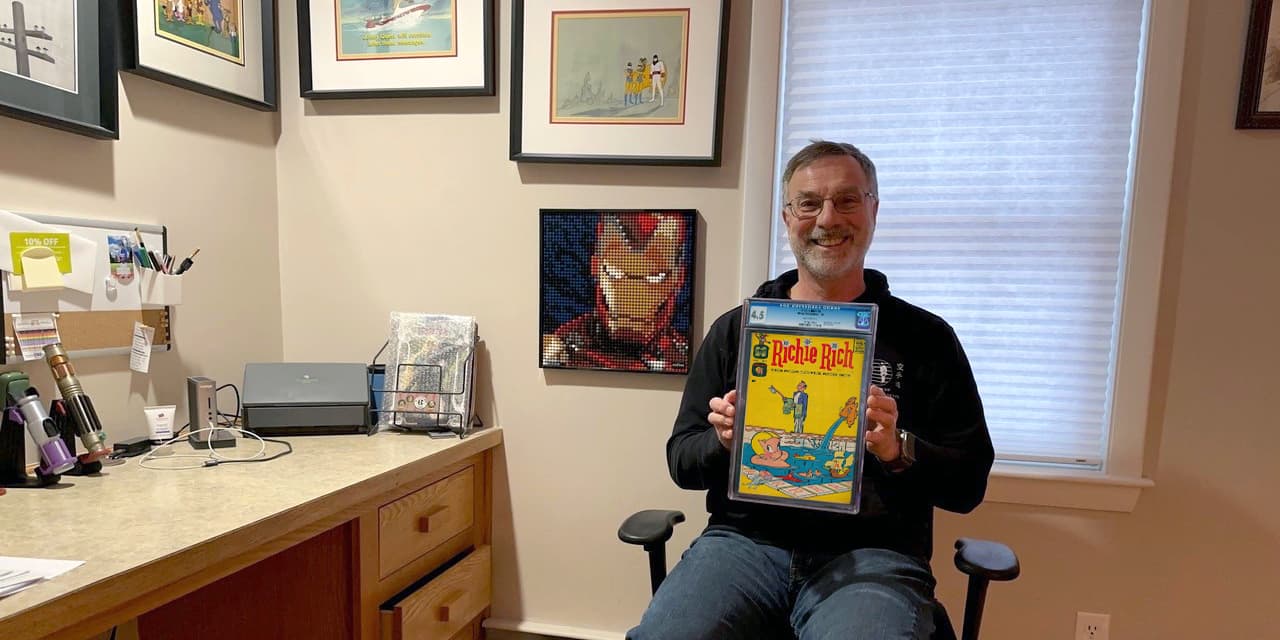Collectors of comic books have long obsessed about Superman, Spider-Man and the broader array of superheroes. And that has led to surging prices for some titles, including sales that have topped $3 million for the rarest ones.
But now some collectors are turning their attention to an entirely different type of comic-book character and asking the question: Is it possible to get rich off Richie Rich?
Yes, Richie Rich, the character otherwise known as “the poor little rich boy” and the namesake behind a line of kiddie-oriented comic books that were popular in the ‘60s and ‘70s.
Granted, the character hasn’t resurfaced in the past few years in films or television unlike so many superheroes or even the Archie crowd (think CW’s “Riverdale” series). But those vintage Richie Rich comic books are starting to find a bigger market, according to experts who track the field.
Consider that a new record of $108,000 was set last year for a near-mint Richie Rich No. 1 book, dating from 1960. That was more than double the previous high of $48,995.
And next month, a collection that includes dozens of Richie Rich titles, including that No. 1 and many other prized early ones from the ‘60s, will be part of an auction organized by ComicConnect, a New York-based seller.
The Richie Rich titles will be sold individually, but ComicConnect co-founder Vincent Zurzolo, says the collection as a whole is drawing plenty of attention.
“I’ve gotten multiple calls. People are very excited about it,” he said.
To be clear, no one is suggesting that Richie Rich is about to give the Marvel or DC superhero universes a real run for their money. Rather, it’s that at a time when superhero-focused collectors with limited means are finding it challenging to buy sought-after titles, the Richie Rich “universe” represents an affordable alternative, comic-book experts say. And because the titles are still relatively low in price, there’s arguably plenty of opportunity for them to increase in value.
Barry Sandoval, a vice president of Heritage Auctions, the prominent Texas-based auction house that sold the Richie Rich No. 1 for $108,000, draws a potent comparison. He notes that a Richie Rich No. 1 in very good condition sells for about $1,000. By comparison, a Fantastic Four No. 1, a Marvel comic dating from almost the same time, goes for about $18,000 in equivalent condition.
Sandoval says the same value equation holds true for many other comic books issued by the now-defunct Richie Rich publisher Harvey Comics, whose portfolio generally focused on non-superhero characters and included such beloved titles as Casper the Friendly Ghost and Little Dot. (Richie Rich made his first appearance in a Little Dot book from 1953.)
“If your goal is to have the most important Harvey Comics from the ‘60s, you could accomplish that for a fraction of what Marvel would cost you,” Sandoval said.
The particular appeal of Richie Rich lies in a variety of factors. Philip Cole, the Boston-based comic collector behind the cache of Richie Rich books that ComicConnect is auctioning off, says the character represents a spirit of innocence far removed from the often darker realm of the superhero world.
“Richie Rich is just feel good,” Cole said.
Of course, there’s also the nostalgia factor. Cole, 61 years, old, started buying Richie Rich books when he was a kid and then building a more serious collection in his adult years, inspired by his childhood affection for the character.
The same holds true for John Sanderson, a 71-year-old collector from Arizona who’s big into Richie Rich and other Harvey Comics characters.
“It’s almost like when you were a kid, they became your friends,” he said.
Zurzolo has another theory about the appeal of Richie Rich, which ties into the basic premise of the book and its showcasing of a child of privilege in all his zany adventures and misadventures (replete with a butler named Cadbury). Namely, we’re always fascinated by the rich and how they live, even if in this case we’re talking about a comic-book character and not an actual person.
Either way, the world of wealth captivates, Zurzolo said: “It’s about making it big in America.”
Read the full article here




